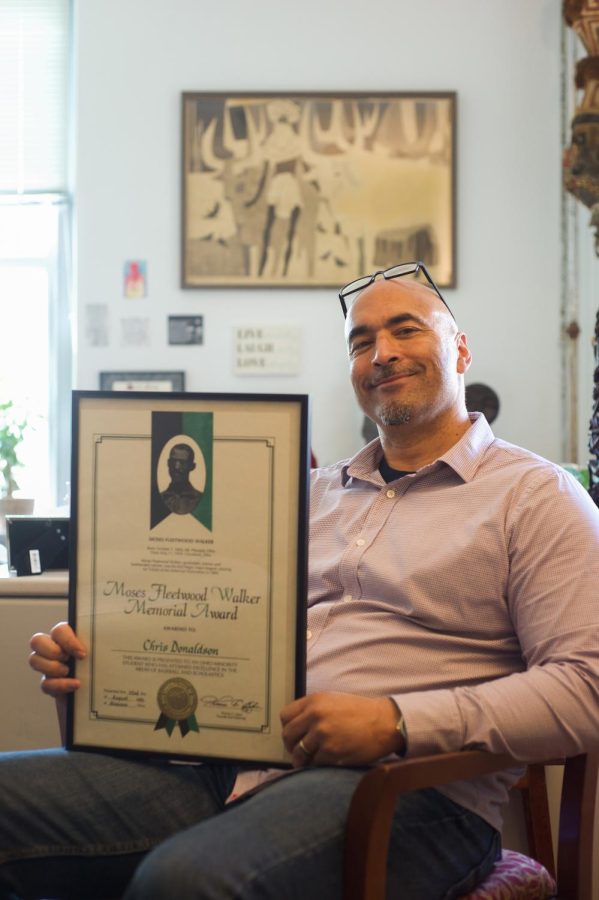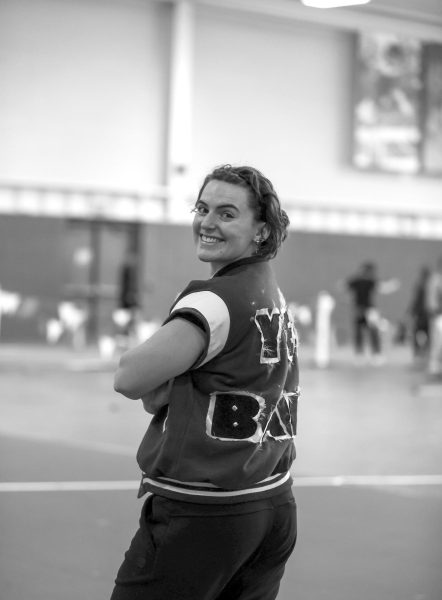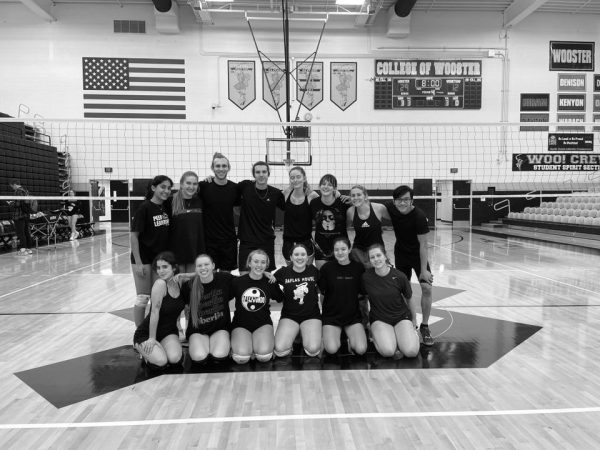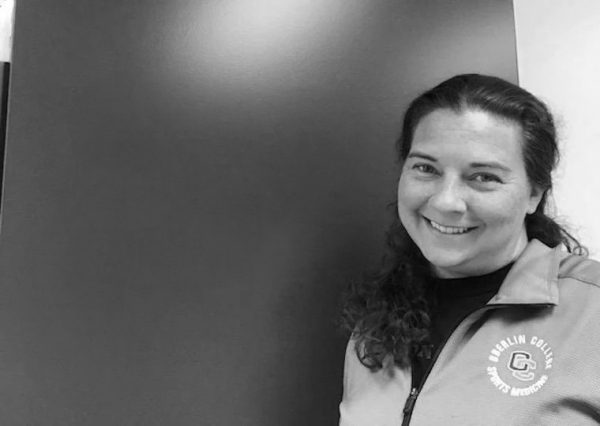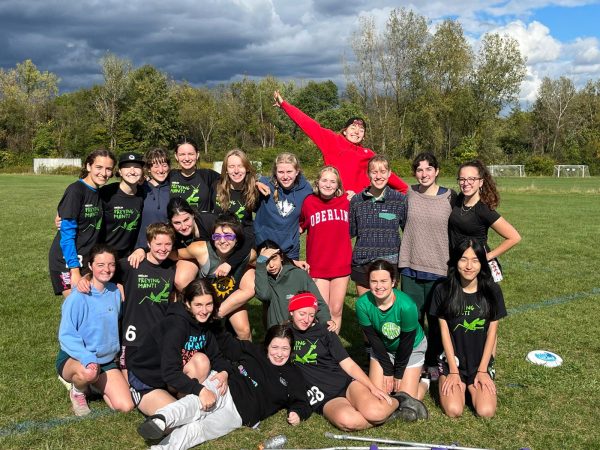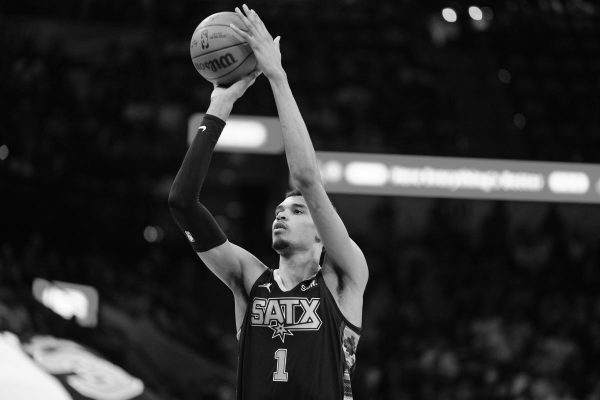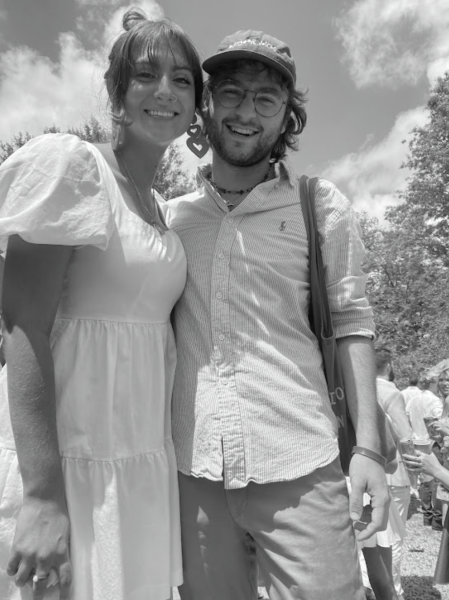In the Locker Room with Chris Donaldson, OC ’97, Assistant Dean of Inclusion and Belonging, Ohio Baseball Hall of Fame Member
Photo by Erin Koo, Photo Editor
Chris Donaldson was the first winner of the Moses Fleetwood Walker Memorial Award.
Chris Donaldson, OC ’97, currently works as the assistant dean of inclusion and belonging at the Multicultural Resource Commons. As a student at Oberlin, he was a baseball player and was inducted into the Ohio Baseball Hall of Fame as the first winner of the Moses Fleetwood Walker Memorial Award, which is given to a student from a marginalized identity who has demonstrated academic and athletic success. After working in Student Academic Services, Donaldson was one of the first staff members to work full-time after the MRC struggled with staffing shortages due to COVID-19 restrictions. He is a Posse 15 mentor, as well as an advisor for Black Student-Athlete Group.
This interview has been edited for length and clarity.
What were the sports that you played at Oberlin and what were some of your achievements?
I played football my first year, and then I actually transferred to Ohio University for my second year. I played baseball for the remaining three years at Oberlin. I had the home run record at that time. I think I might have had the most runs batted in as well. And this was only in three years too. I was also inducted into the Ohio Baseball Hall of Fame as the first annual recipient of the Moses Fleetwood Walker Memorial Award. He was an Oberlin graduate back in the 1880s. He was a barehanded catcher for baseball, and was the first Black Major League baseball player before what we know it as. Academically, I was one of those students that kind of struggled to come up with a major because it was hard for me to find that passion back in those days. I ended up graduating as an African American Studies major.
You started working for Oberlin a couple months after you graduated. Can you take me through the jobs you’ve had and what led you to the MRC?
When I first started working at Oberlin, I was with the Up- ward Bound program. Upward Bound was what’s called a TRIO program. These are programs that are sponsored by the U.S. Department of Education, and Oberlin was our fiscal agent. I was working for Oberlin, but I was also working at some of the area high schools, working with low-income and first-generation students and students with disabilities and getting them ready for college. I did that for six years. We lost our funding, and then I started working soon after that with Student Academic Services, which is now the Center for Student Success. I’ve been here for 25 years.
Almost exactly a year ago, I transitioned over from the Center for Student Success to the MRC. We were going through a change. Vice President and Dean of Students Karen Goff had this vision of re-imagining the program. There was a big need in the MRC at the time because we really didn’t have any full-time staff members a year ago. It seemed like a good fit for me and was more of an organic transition.
I’m the assistant dean for inclusion and belonging. I try to promote certain dialogue on campus. I’m working with Black and Latino male-identifying and gender-expansive students. I’m also working with Obies for Undocumented Inclusion and providing support for them as well.
What does your work look like with student-athletes?
I’m the advisor for Black Student Athlete Group. I’m an academic advisor, but I also do holistic advising. Some of the athletes that I advise academically include everyone from volleyball players to football players, baseball, softball, and the track teams. These are all students that I’ve been working with this year, both unofficially and officially. We coordinated a program in the fall. It was a dialogue program where we were trying to bridge some of the gaps between the football team and non-athletes on campus just so they can get a chance to get to know each other and understand each other a little more. I was a football player, and, you know, we have a tendency in athletics to silo ourselves — football players hang out with other football players. But there’s not a lot of dialogue outside of that. I think people realize we have more in common than we thought. Football players aren’t just these jocks on campus, they’re real people.
The Athletics department is trying to do a little more with Diversity, Equity, and Inclusion work. They hired a consulting team called Threefold a couple months ago. I attended a group meeting with athletics to talk about the state of athletics here at Oberlin. That’s going to be an ongoing thing that we’re going to be doing more collaboratively together. I also work with coaches in recruitment. Sometimes I’ll get a call from a coach saying, “Hey, I have a recruit coming in. I’d like them to talk to you to find out more about resources on campus.”
Why do you think the relationship between the DEI work that you do and athletics is so important?
It’s just something I have a passion for. I’m passionate about working with student-athletes because I’ve been there. I acknowledge that there are obstacles that student-athletes have to overcome sometimes. It could be time management, dynamics. Athletes are viewed a little differently than other students on campus. I think the work that we do, the support that we provide, is very much needed because sometimes people just need a platform. They just need some- one to talk to. They just need a resource.
What has been the most rewarding experience for you working in the MRC?
We have a great group of people that I’m working with. I’m really fortunate to be working in an office that’s supportive of each other. We have our disagreements sometimes, but it’s an environment that I really enjoy working in. If you would’ve asked me when I was in college if this is the type of work that I would want to do, I would’ve had no idea. I didn’t really have a good focus or an idea of what I wanted to do after graduating. I kind of stumbled on this, to be honest. But I found that I really have a passion for working directly with students, working with a good staff here on campus, working toward goals and a mission that we all agree with.


